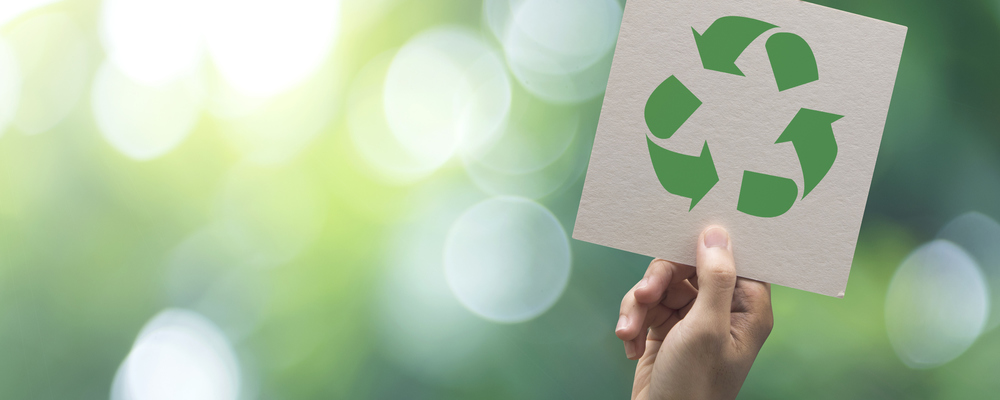Drop off your CV
We'd love to hear from you. Send us your CV and one of our specialist consultants will be in touch.

Sustainable practice in the packaging industry has long been a challenging and complex topic. Today, amidst intensifying climate concerns, pressure is mounting on packaging businesses to embrace innovation and drive product enhancements that have a positive social and environmental impact. In Australia, this move appeases consumer beliefs that businesses and brands should be the ones leading on sustainability rather than the government.
An emphasis on developing sustainable solutions isn’t new, but in recent years, a focus on greater transparency and waste reduction in the packaging sector has shone light on some amazing and innovative ways of working and catapulted into the limelight those brands that centre their full product cycle – from design to production - on sustainable concepts. This in turn has helped to foster an environment of best practice when it comes to developing new packaging ideas.
In an attempt to better manage packaging waste, the Australian Packaging Covenant Organisation (APCO) is overseeing the delivery of the four National Packaging Targets with the aim of achieving these by 2025.
The 2025 National Packaging Targets are:
100% of all Australia’s packaging will be reusable, recyclable or compostable by 2025 or earlier.
70% of Australia’s plastic packaging will be recycled or composted by 2025.
30% average recycled content will be included across all packaging by 2025.
Problematic and unnecessary single-use plastic packaging will be phased out through design, innovation or introduction of alternatives.
These targets, which will apply to all packaging that is made, used and sold in Australia, will require a complete and thorough change to the way packaging is designed, manufactured and retrieved, and as of now, brands and manufacturers across Australia need to stand up to the challenge by asking what operational changes they need to make in order to drive this transformation.
Packaging giants like Amcor have championed this practice by pledging to develop all its packaging to be recyclable or reusable by 2025 and joining the Materials Recovery for the Future (MRFF) research programme to explore further recycling solutions. This is a massive undertaking and a commitment to not only changing current productions methods but an investment in finding long-term sustainable solutions.
Comparably, packaging manufacturer Impact International is taking major steps forward when it comes to looking after our planet and has completely committed to manufacturing environmentally responsible collapsible tubes – all powered by the first solar farm designed for industrial use in Sydney. For its commitment to the environment in its design and production of Margorie, Craig and Sarah tubes, Impact recently won the award for Creative Sustainability at this year’s National Print Awards. These sustainable tubes were developed for brands that want to demonstrate their commitment to the environment and brand protection to their customers via their tube packaging.
It's an exciting time for disrupting existing package offerings with household brands also leading the way in many areas. Carlsberg recently announced its plans to make beer bottles out of paper and has partnered with consumer brands including Coca-Cola and LÓreal to produce effective alternatives. As a result, PepsiCo and Coca-Cola have shared plans to start selling water in aluminium cans.
These hugely successful global enterprises taking such progressive steps to address their environmental footprint is refreshing and desperately needed. Big businesses championing this change makes the topic of sustainability part of consumers’ everyday conversations and is likely to affect consumer behaviour when purchasing.
While global leaders invest resource into adapting their existing offerings, entrepreneurial start-ups are leading the way in radicalising packaging from the start. Prevention is better than cure after all as companies such as Arekapak, which creates 100% natural product packaging from palm leaves, have proven. And thinking outside of the box further, zero waste concepts such as edible water capsules have radicalised industry thinking, with UK start up Skipping Rocks Labs trialling the concept of a seaweed-based water capsule at this year’s London Marathon.
It could be argued that cost can play a major role in brands packaging choices, with recycled resin prices proving to be higher than virgin resin. However, in a space where there is deafening customer demand, brand owners are able to look at their story with a different perspective and position themselves within a sustainable business model – a journey that people are increasingly buying into.
It is a combination of new innovators, radicalising the way the industry looks at sustainability from the inception of its business model, and decades old stalwarts of the industry continually developing and redefining their practice, that has been driving forward change in this sector. Globally, consumers and businesses need to believe in and endorse responsible packaging. To play our part in contributing to a better environment, we all have a responsibility to shop consciously and support brands to design and produce recyclable or reusable packaging, or innovate packaging production by using a reduced amount of material.
Sources